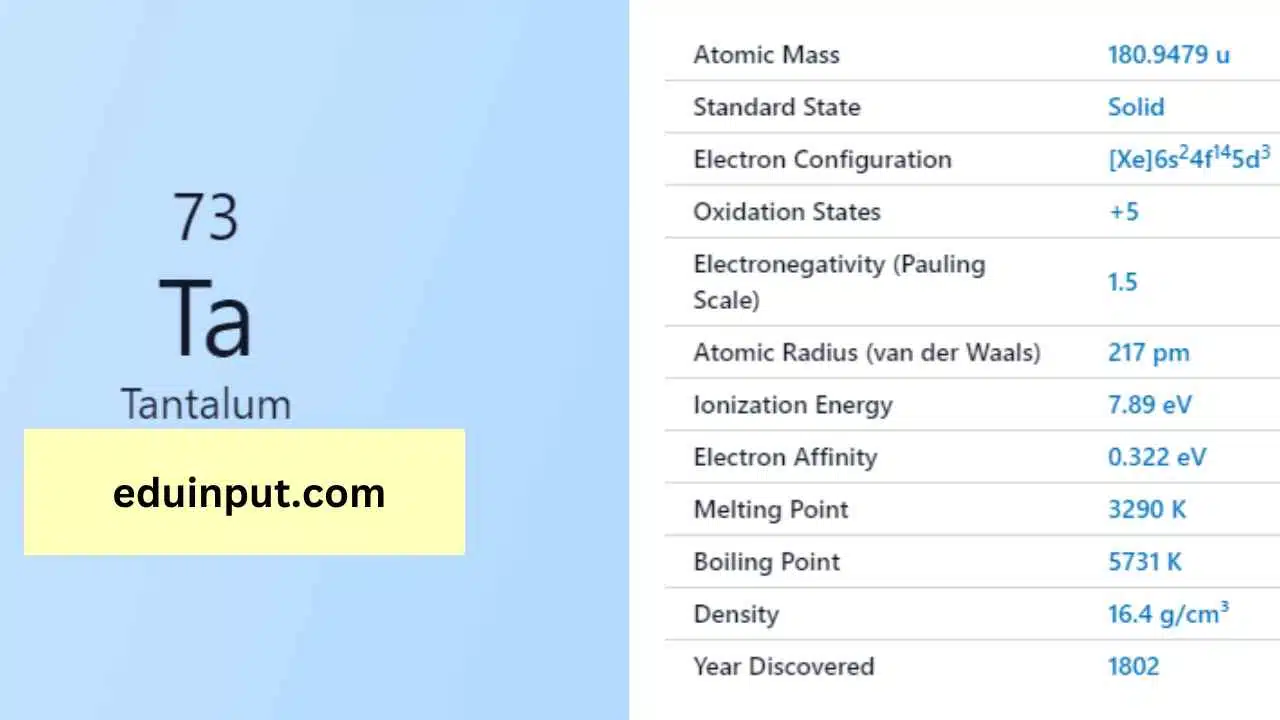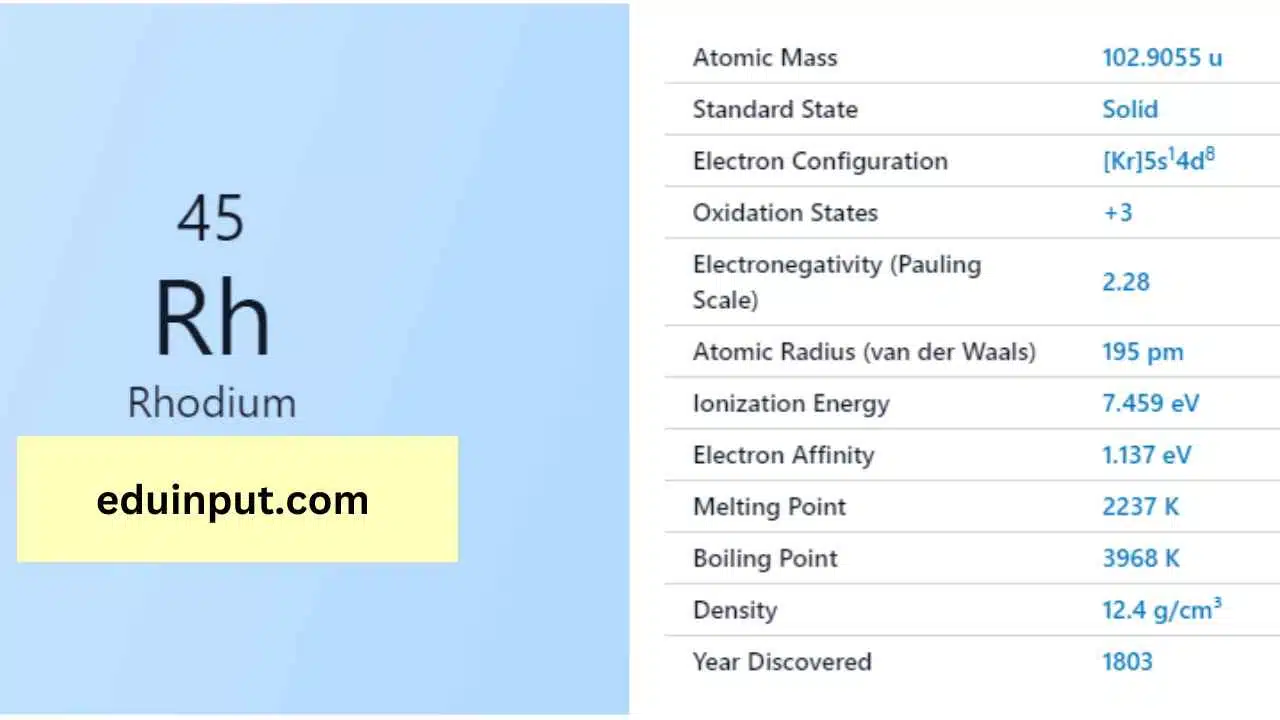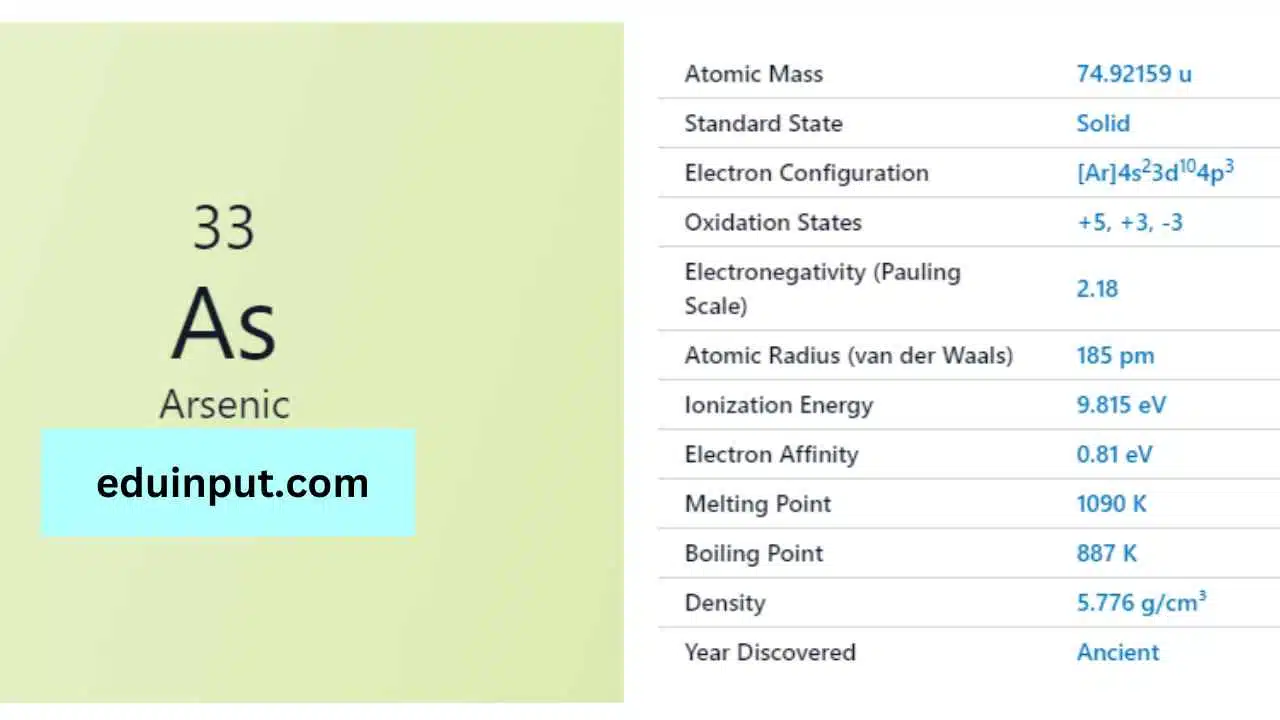Rhenium-Discovery, Properties, And Applications
Rhenium is a chemical element with the atomic number 75 and the symbol Re. It is a rare, silvery-white, dense transition metal with unique properties that make it valuable in various applications, including aerospace, electronics, and nuclear energy.

| Property | Value |
| Name | Rhenium |
| Symbol | Re |
| Atomic number | 75 |
| Relative atomic mass (Ar) | 186.207 (1) |
| Standard state | Solid at 298 K |
| Appearance | Greyish white |
| Classification | Metallic |
| Group in periodic table | 7 |
| Group name | (none) |
| Period in periodic table | 6 |
| Block in periodic table | d |
| Shell structure | 2.8.18.32.13.2 |
| CAS Registry | 7440-15-5 |
Discovery
Rhenium was discovered in 1925 by the German chemists Ida Tacke-Noddack, Walter Noddack, and Otto Carl Berg. They were studying the mineral columbite and found a new element in its ore. Rhenium was the last stable element to be discovered and was the first element to be predicted by the periodic table.
Physical Properties
Rhenium is a dense, silvery-white metal with a very high melting point of 3,186°C and a boiling point of 5,627°C. It is resistant to corrosion and oxidation, making it useful in high-temperature applications. Rhenium is one of the densest elements, and it has the third-highest melting point of any element after tungsten and carbon.
Chemical Properties
Rhenium is a transition metal that has unique chemical properties that make it valuable in various applications. It has a very high melting point and is resistant to corrosion and oxidation. Rhenium is also a very hard metal, and it has a high modulus of elasticity. It is also a good conductor of electricity and heat.
Facts
- Rhenium is a rare, silvery-white, dense transition metal with unique properties that make it valuable in various applications.
- Rhenium was discovered in 1925 and was the last stable element to be discovered.
- Rhenium is used in high-temperature applications, such as aerospace, electronics, and nuclear energy.
Applications
Rhenium has many applications in various fields, including aerospace, electronics, and nuclear energy. Some of the most common applications of rhenium include:
- Aerospace: Rhenium is used in high-temperature applications, such as jet engine components, where it provides strength and resistance to corrosion and oxidation.
- Electronics: Rhenium is used in the production of electrical contacts, which require high conductivity, corrosion resistance, and durability.
- Nuclear energy: Rhenium is used in nuclear reactors, where it is used as a moderator and reflector, helping to control the rate of nuclear reactions.
Rhenium is a rare and valuable transition metal with unique properties that make it useful in various applications. Its resistance to corrosion and oxidation, high melting point, and hardness make it valuable in high-temperature applications, such as aerospace and electronics. Rhenium is also used in nuclear energy, where it helps to control the rate of nuclear reactions.






